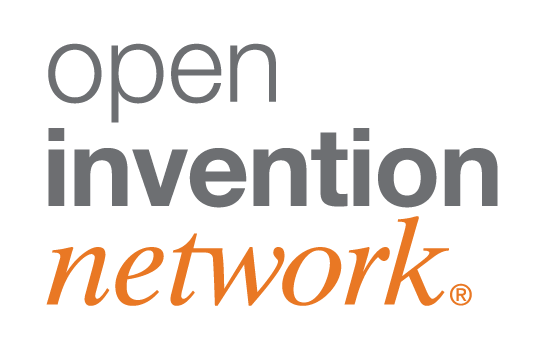Automotive
Whether or not you know it, Open Source is running your car.
The automotive industry was an early adopter of Open Source and one that saw the benefits of reducing costs, accelerating development, introducing new features and even differentiating brands.
Today, vehicles are becoming mobile tech devices. In other words, automakers are becoming software companies. They realize Open Source is here today, here to stay and fundamental for the future. Linux — a family of Open Source Operating Systems — is paving the road for advancements we never envisioned and helping them become reality. Who would have imagined cars would stream music from the cloud, allow hands-free phone calls, offer infotainment systems, provide real time traffic information, monitor speed and track fuel efficiency? Chances are, you have Linux under your hood. Audi, BMW, Daimler, Ford, General Motors, Great Wall Motors, Honda, Hyundai, Mazda, Nissan, Renault, Subaru, Suzuki, Toyota and other manufacturers throughout the world are using Open Source Software (OSS) and/or Open Source Hardware (OSH) in one way or another.
A key open source project for the industry is Automotive Grade Linux (AGL). A collaborative Open Source project at the Linux Foundation, AGL brings together global automakers, suppliers, developers and tech companies to accelerate the progress and adoption of the connected car through a fully open, shared software platform. Linux is also fueling innovation for the future — Advanced Driver Assistance Systems (ADAS), digital cockpits, vehicle electrification and eventually self-driving cars.
Knowing the Open Source community is — and will continue — delivering technology advances to promote competition, foster growth and meet consumer desires, a growing number of automotive industry frontrunners are publicly demonstrating their commitment to both Open Source and Patent Non-Aggression by joining our community.
Whether or not you know it, Open Source is running your car.
The automotive industry was an early adopter of Open Source and one that saw the benefits of reducing costs, accelerating development, introducing new features and even differentiating brands.
Today, vehicles are becoming mobile tech devices. In other words, automakers are becoming software companies. They realize Open Source is here today, here to stay and fundamental for the future. Linux — a family of Open Source Operating Systems — is paving the road for advancements we never envisioned and helping them become reality. Who would have imagined cars would stream music from the cloud, allow hands-free phone calls, offer infotainment systems, provide real time traffic information, monitor speed and track fuel efficiency? Chances are, you have Linux under your hood. Audi, BMW, Daimler, Ford, General Motors, Great Wall Motors, Honda, Hyundai, Mazda, Nissan, Renault, Subaru, Suzuki, Toyota and other manufacturers throughout the world are using Open Source Software (OSS) and/or Open Source Hardware (OSH) in one way or another.
A key open source project for the industry is Automotive Grade Linux (AGL). A collaborative Open Source project at the Linux Foundation, AGL brings together global automakers, suppliers, developers and tech companies to accelerate the progress and adoption of the connected car through a fully open, shared software platform. Linux is also fueling innovation for the future — Advanced Driver Assistance Systems (ADAS), digital cockpits, vehicle electrification and eventually self-driving cars.
Knowing the Open Source community is — and will continue — delivering technology advances to promote competition, foster growth and meet consumer desires, a growing number of automotive industry frontrunners are publicly demonstrating their commitment to both Open Source and Patent Non-Aggression by joining our community.
Here are a few highlights about our community members:

Hyundai’s Open Data Platform gathers data — such as cumulative distance traveled, fuel usage patterns and driving habits — from consumers who drive its connected cars to add value to customer experiences

The Subaru Outback and Legacy use Open Source Software (OSS) from AGL

Self-driving car prototypes from Daimler and Ford, among others, have released datasets under open licenses

French carmaker Renault claims it created the “world’s 1st Open Source mass-market vehicle” introduced in 2017 as the POM (Platform Open Mind) which is a Twizy ultracompact Electronic Vehicle (EV) that runs on OSS

The 2018 Toyota Camry became the 1st production vehicle in the United States to use AGL in its infotainment system

The 2020 Mercedes-Benz vans use AGL for its new onboard operating system for its commercial vehicles
OIN Community Members
Open Source Advocates | Automotive
Don’t miss out on Table 13 expanded coverage.
Linux System Table 13 increases coverage for Cloud Computing, Kubernetes & Eclipse, as well as expands coverage for modern languages by adding many new libraries for Go, Python & Rust.
Because we believe in transparency, choice & shared commitment to the future of Open Source, we are not automatically converting existing members to OIN 2.0. All OIN members need to sign an OIN 2.0 License Agreement.
Don’t miss out on Table 13 expanded coverage.
Linux System Table 13 increases coverage for Cloud Computing, Kubernetes & Eclipse, as well as expands coverage for modern languages by adding many new libraries for Go, Python & Rust.
Because we believe in transparency, choice & shared commitment to the future of Open Source, we are not automatically converting existing members to OIN 2.0. All OIN members need to sign an OIN 2.0 License Agreement.















